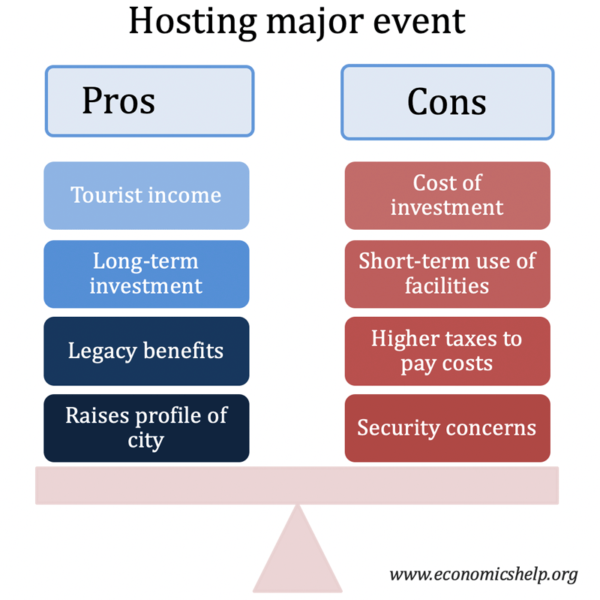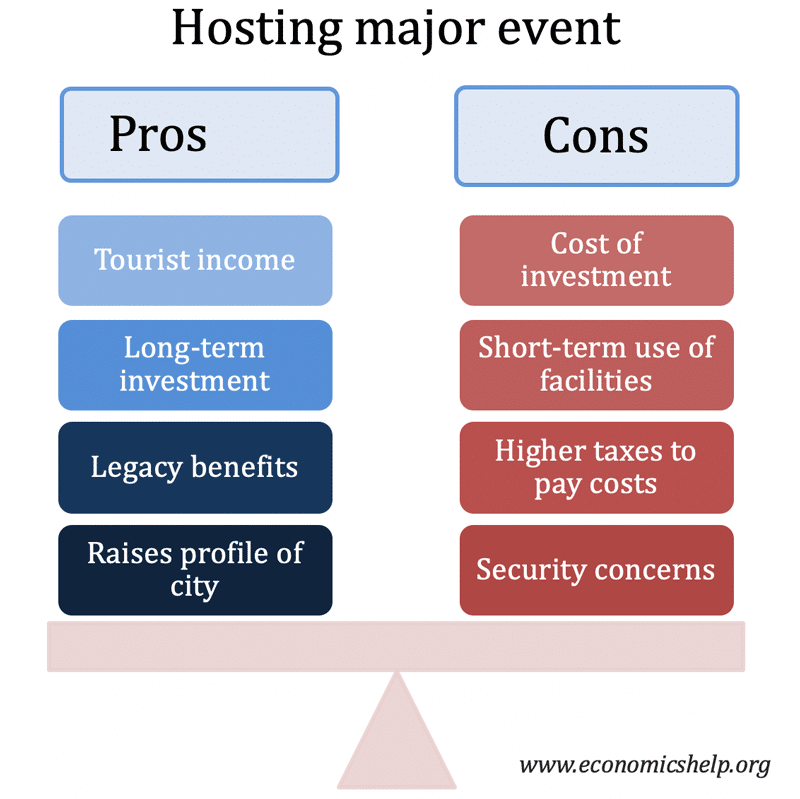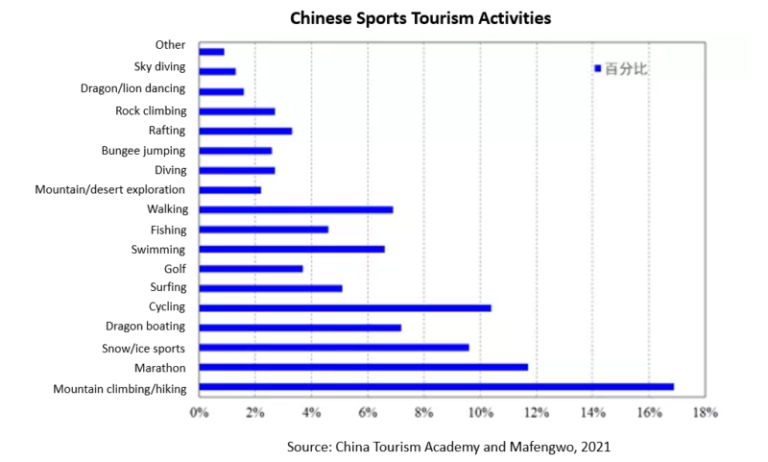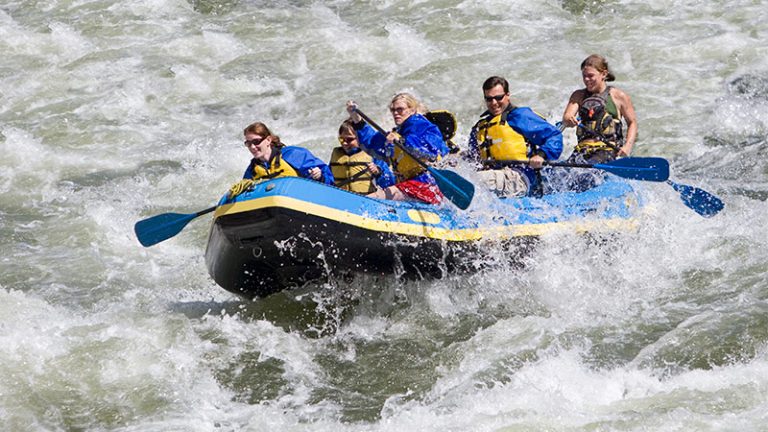Pros And Cons of Sports Tourism
Sports tourism can boost local economies, enhance community engagement and provide an opportunity for travelers to experience new cultures. However, it can also lead to overcrowded destinations, environmental degradation, and cultural commodification.
Sports tourism is a rapidly growing phenomenon worldwide. It entails traveling to a particular location for the sake of participating in or spectating sports events. This type of tourism offers several advantages to both host communities and visitors alike. For example, it brings in new economic opportunities, including increased job creation, local business development, and improved infrastructure.
Additionally, it promotes cultural exchange, facilitates social interaction, and helps to develop a sense of community. However, sports tourism also has some disadvantages, including environmental degradation, cultural commodification, and overcrowding of destination sites. This article explores the pros and cons of sports tourism and their impact on host communities and travelers.

Credit: www.economicshelp.org
Pros Of Sports Tourism
Sports tourism offers several advantages such as promoting physical activity and fostering cultural exchange. Additionally, it generates revenue for local businesses and provides opportunities for athletes to compete globally.
Sports tourism has become increasingly popular over the years, as more and more people travel both nationally and internationally to watch or participate in a wide range of sports events. Sports tourism has significant benefits, including providing a boost to the local economy, promoting healthy lifestyles, and fostering community development.Provides A Boost To Local Economy
Sports tourism is a significant source of revenue for local businesses ranging from hotels, restaurants, and shops to transport companies and tour operators. According to the World Tourism Organization, sports tourism accounts for 25% of global tourism. Visitors who come to attend or participate in sports events bring in significant amounts of tourism dollars that can help local communities thrive financially. The host cities and towns that frequently hold sports competitions are among the multiple beneficiaries of sports tourism, owing to the purchase of local produce for the preparation of meals, temporary employment opportunities, and local businesses’ thriving.Promotes Healthy Lifestyles
Sports tourism promotes healthy lifestyles as it encourages visitors to maintain their fitness regimes even when they are on holiday. It provides an opportunity for people to engage in various sports activities and training, such as yoga retreats, cycling, and marathon running, amongst a range of other sports. By engaging in such physical activities during their vacations, visitors can improve their physical and mental wellbeing, minimize stress levels, and feel revitalized.Fosters Community Development
Sports tourism plays a crucial role in supporting local communities’ development by nurturing a sense of pride and belonging. When a city or town hosts a major sporting event, it helps to create a sense of community among its members. People from diverse backgrounds come together to cheer for their favorite teams or teams from their community, fostering togetherness and collaborative development. Sports tourism can also serve as a platform for social and cultural exchange. Visitors get to know and appreciate various cultures and traditions they may have otherwise remained oblivious to. In conclusion, sports tourism has several benefits, not only to the visitors but also to the host communities. It provides a boost to the local economy, promotes healthy lifestyles, fosters community development, and serves as a platform for social and cultural exchange. With proper planning and execution, sports tourism can positively transform the lives of individuals, communities, and nations at large.
Credit: slideplayer.com
Cons Of Sports Tourism
Sports tourism can have negative impacts on the environment, including increased pollution and degradation of natural areas. Additionally, it can increase traffic and crowd sizes, leading to overcrowding and overuse of resources. These issues can ultimately harm local communities and their economies.
Sports tourism has gained immense popularity in recent times, with sports enthusiasts visiting different destinations to attend sporting events. While it may bring financial benefits to the host nation, there are also some cons associated with sports tourism that cannot be ignored. Let’s take a look at some of the cons of sports tourism, including environmental concerns and a risk of overburdening infrastructure.Environmental Concerns
One of the major cons associated with sports tourism is the environmental impact it can have. Hosting a sporting event requires a large amount of resources, ranging from water to electricity and transportation. This puts a significant strain on the environment and can result in damage to natural habitats and wildlife. Additionally, events such as marathon races can have a negative impact on local ecosystems. Large-scale events can lead to trampling of vegetation and soil compaction, affecting the habitat of plants and animals. This could potentially result in a loss of biodiversity in the area.Risk Of Overburdening Infrastructure
Another con associated with sports tourism is the risk of overburdening infrastructure. While hosting a sporting event can bring in a lot of revenue, it can also place a significant strain on the local infrastructure. The increase in traffic and demand for services such as healthcare and emergency response can disrupt the normal functioning of the area. Moreover, the influx of tourists can also result in overcrowding, making it difficult for locals to go about their daily lives. This can strain relationships between locals and tourists, and potentially have a negative impact on the overall experience of both parties. In conclusion, while sports tourism can bring in significant economic benefits, it is important to consider the cons associated with it. Environmental concerns, as well as the risk of overburdening infrastructure, are among the major cons that need to be taken into account when planning such events. By being aware of these issues, we can work towards making sports tourism more sustainable and responsible for all parties involved.
Credit: www.researchgate.net
Frequently Asked Questions On Pros And Cons Of Sports Tourism
Why Is Sports Tourism Good?
Sports tourism is good because it boosts local economies, generates revenue through tourism spending, promotes physical activity, and enhances international relations through cultural exchange. It also creates job opportunities and encourages community involvement in sports. Overall, sports tourism has numerous benefits for both the host community and tourists.
What Is The Value Of Sport Tourism?
Sport tourism holds immense value as it generates revenue for local economies, creates job opportunities, promotes a healthy lifestyle and encourages cultural exchange. Sporting events attract a vast audience, offering an opportunity to showcase local traditions and attractions, boosting tourism numbers and increasing the overall economic impact.
What Are Examples Of Sports Tourism?
Sports tourism refers to traveling to participate in or watch sporting events. Examples include attending the Olympics, Super Bowl, World Cup, or visiting a city to participate in a marathon or golf tournament. Other popular sports tourism activities include skiing, surfing, and fishing trips.
Conclusion
Sports tourism can be an exciting and fulfilling adventure for travelers who love to experience new cultures and witness world-renowned sporting events. However, with the benefits come some potential drawbacks, including overcrowding, environmental impact, and increased costs. Despite the challenges, sports tourism can contribute significantly to local economies and promote cultural exchange.
It’s essential to weigh the pros and cons before embarking on a sports tourism journey. By being mindful and responsible travelers, we can minimize any negative impact and make the most out of the experience.






